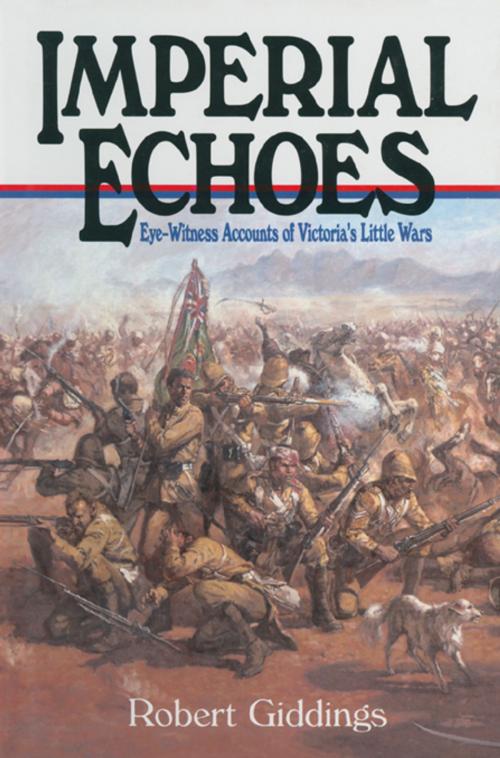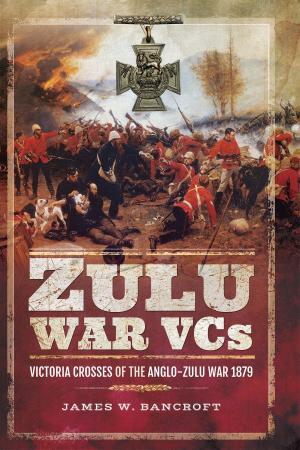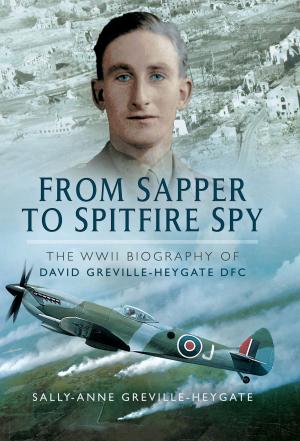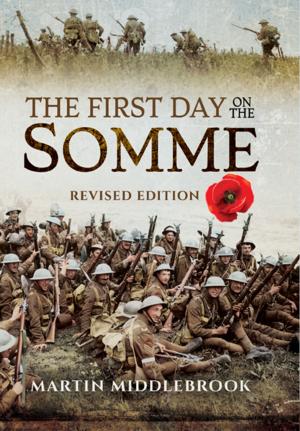Imperial Echoes
Eye-Witness Accounts of Victoria's Little Wars
Nonfiction, History, Africa, South Africa, Military, Other| Author: | Robert Giddings | ISBN: | 9781473815421 |
| Publisher: | Pen and Sword | Publication: | April 25, 1994 |
| Imprint: | Leo Cooper | Language: | English |
| Author: | Robert Giddings |
| ISBN: | 9781473815421 |
| Publisher: | Pen and Sword |
| Publication: | April 25, 1994 |
| Imprint: | Leo Cooper |
| Language: | English |
The years between the Battle of Waterloo in 1815 and the outbreak of the First World War in 1914 are sometimes described as 'The Long Peace', the there were in fact British Soldiers fighting somewhere in the world throughout the whole of that period, usually in an effort to restore order in some far-flung parts of the Empire 'upon which the sun never set.' Although these campaigns have been well documented by numerous historians, Robbert Giddings, well known as author, journalist and writer for radio and television, here adopts an entirely new approach and relies largely on first-hand accounts to show not mealy what happened but what it was actually like to be there. His sources are many and varied and not confined the the soldier's own records. Nothing, for instance, could surpass in vividness Florentia Sale's brilliant account of the terrible retreat from Kabulin 1842. Due respect is also paid to the courage of the opposition. As Lieutenant Charles Townshend wrote after Omdurman in 1898, 'The Valour of these poor half-starved Dervishes...would be graced by Thermopylae.' The book continues eye-witness accounts from the following campaigns and minor wars: Maratha, Gurkha, Burmese, Ashanti, opium, Afghan, Maori, Sikh, Kaffir, Persian, Abyssinian, Zulu, Boer, Egyptian, Sudanese and Matabele. The list alone shows how busy the British Soldier was throughout the nineteenth century. The text itself brilliantly recapture the nature of soldiering in that era.
The years between the Battle of Waterloo in 1815 and the outbreak of the First World War in 1914 are sometimes described as 'The Long Peace', the there were in fact British Soldiers fighting somewhere in the world throughout the whole of that period, usually in an effort to restore order in some far-flung parts of the Empire 'upon which the sun never set.' Although these campaigns have been well documented by numerous historians, Robbert Giddings, well known as author, journalist and writer for radio and television, here adopts an entirely new approach and relies largely on first-hand accounts to show not mealy what happened but what it was actually like to be there. His sources are many and varied and not confined the the soldier's own records. Nothing, for instance, could surpass in vividness Florentia Sale's brilliant account of the terrible retreat from Kabulin 1842. Due respect is also paid to the courage of the opposition. As Lieutenant Charles Townshend wrote after Omdurman in 1898, 'The Valour of these poor half-starved Dervishes...would be graced by Thermopylae.' The book continues eye-witness accounts from the following campaigns and minor wars: Maratha, Gurkha, Burmese, Ashanti, opium, Afghan, Maori, Sikh, Kaffir, Persian, Abyssinian, Zulu, Boer, Egyptian, Sudanese and Matabele. The list alone shows how busy the British Soldier was throughout the nineteenth century. The text itself brilliantly recapture the nature of soldiering in that era.















